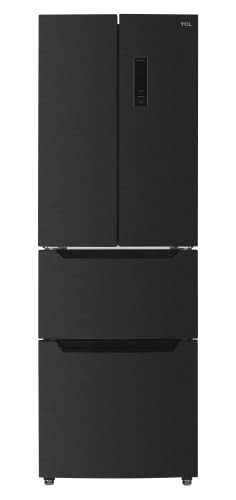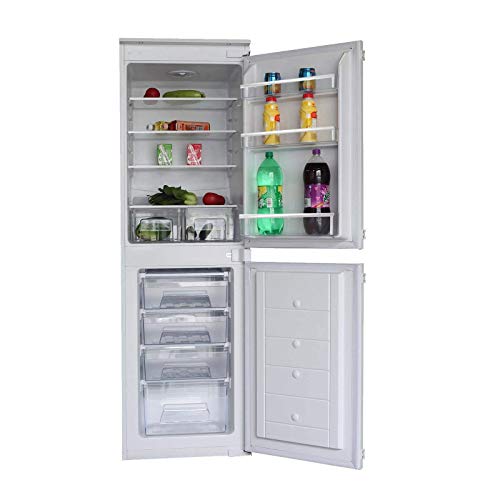fridge-freezer-to-buy0760
fridge-freezer-to-buy0760
The Best Fridges And Freezers Tricks To Make A Difference In Your Life

Understanding Fridges and Freezers: The Essential Kitchen Appliances
Refrigerators and freezers are 2 of the most vital home appliances in modern-day kitchen areas. These home appliances serve a crucial function in food preservation and waste reduction by making sure that disposable products stay fresh and safe for usage. This article digs into the various kinds of fridges and freezers, their functionalities, and crucial considerations for selection and maintenance.
Kinds of Refrigerators
The market offers a range of refrigerator types, each developed to fulfill different consumer requirements. Below is a list of the most typical kinds of Best fridges (https://git.Fan4w.com/):
-
Top-Freezer Refrigerators
- Most common type.
- Freezer compartment lies above the refrigerator section.
- Generally more budget friendly and energy-efficient.
-
Bottom-Freezer Refrigerators
- Freezer is located at the bottom.
- Permits much easier access to fresh products at eye level.
- Often features pull-out drawers for better company.
-
Side-by-Side Refrigerators
- Refrigerator and freezer areas are nearby.
- Ideal for narrow kitchens and enables simple access to both compartments.
- Frequently comes with water and ice dispensers.
-
French Door Refrigerators
- Integrates a bottom freezer with double doors at the top.
- Offers sufficient storage and elegant styles.
- Often consists of functions like temperature-controlled drawers.
-
Compact Refrigerators
- Smaller sized size perfect for restricted spaces.
- Typically used in dorm rooms, little apartments, or as secondary fridges.
Table 1: Comparison of Refrigerator Types
| Type | Advantages | Downsides | Normal Size |
|---|---|---|---|
| Top-Freezer | Affordable, energy-efficient | Less convenient access to the freezer | 14-30 cu. ft. |
| Bottom-Freezer | Easier access to fresh food | Freezer can be harder to organize | 19-30 cu. ft. |
| Side-by-Side | Easy gain access to, water/ice dispenser | Narrow vs. storage area | 22-30 cu. ft. |
| French Door | Elegant, large, arranged | More pricey | 20-30+ cu. ft. |
| Compact | Space-saving, portable | Restricted storage | 1.7-5.5 cu. ft. |
Types of Freezers
Freezers are a similarly crucial appliance for food conservation. They can be found in numerous styles developed to fit different home needs. Consider the list below types:
-
Upright Freezers
- Operate like a basic refrigerator with vertical storage.
- Simpler to organize with racks and compartments.
-
Chest Freezers
- Large, horizontal style usually offering more storage space.
- Maintains temperature levels much better during power failures.
- More energy-efficient than upright designs.
-
Portable Freezers
- Compact systems perfect for outside activities or small areas.
- Often utilized for camping trips or as short-term storage.
Table 2: Comparison of Freezer Types
| Type | Advantages | Downsides | Common Size |
|---|---|---|---|
| Upright Freezer | Easier to arrange | Less energy-efficient, more floor area | 5-20 cu. ft. |
| Chest Freezer | Holds more items, energy-efficient | Harder to organize | 5-25 cu. ft. |
| Portable Freezer | Compact and versatile | Restricted storage capability | 1-10 cu. ft. |
Key Features to Consider
When picking a fridge or freezer, consumers must remember a number of features that can improve performance:
- Energy Efficiency: Look for designs with the ENERGY STAR accreditation to save money on electrical power costs.
- Storage Capacity: Evaluate storage requirements based upon family size and consuming practices.
- Temperature Control: Some devices provide digital controls for precise temperature settings.
- Adjustable Shelving: Customizable shelving permits for ideal company.
- Water and Ice Dispenser: Offers benefit however can take up valuable area inside.
- Sound Level: Sound ratings can influence convenience, particularly in open-concept homes.
Benefits and drawbacks of Having a Fridge and Freezer
While fridges and freezers are essential technologies, they also have particular advantages and disadvantages:
| Pros | Cons |
|---|---|
| Maintain food life-span and decrease waste | Need routine maintenance |
| Permit bulk buying and meal prepping | Can be pricey to purchase and run |
| Offer convenience and fast access to food | Occupy significant kitchen space |
Upkeep Tips
To guarantee durability and ideal efficiency of fridges and freezers, think about the following maintenance pointers:
- Regular Cleaning: Clean the exterior and interior regularly to prevent buildup of dirt and germs.
- Check Seals: Inspect door seals regularly for leaks to preserve efficiency.
- Temperature level Settings: Keep the fridge at 34-38 ° F and the freezer at 0 ° F for optimum food conservation.
- Defrost as Needed: Chest freezers need to be thawed regularly to maintain efficiency.
- Clear Air Vents: Ensure that air flow isn’t obstructed to enhance energy performance.
Frequently asked questions About Fridges and Freezers
Q1: How long can food be kept in a freezer?A: Most foods can be kept in a freezer for numerous months. Meats and poultry often last 4-12 months, while veggies can last as much as 8-12 months.

Q2: How frequently should I clean my fridge and freezer?A: It is advisable to clean your fridge and freezer every 3 to 6 months, or as required when spills happen. Q3: Can I put hot food directly in the fridge?A: It is recommended to cool hot food to space temperature before placing it in the fridge to avoid
raising the temperature level inside the appliance. Q4: Why is my fridge running constantly?A: This might be due to a malfunctioning thermostat, clogged up coils, or door seals that aren’t working properly. Fridges and freezers are invaluable
possessions to contemporary households, supplying vital services for food storage and conservation.
Understanding the various types, features, and upkeep requirements can assist customers select the right appliances for their requirements and optimize their functionality. Accepting energy-efficient models not just supports sustainable practices however also adds to substantial savings on utility costs, making notified options more essential than ever.


